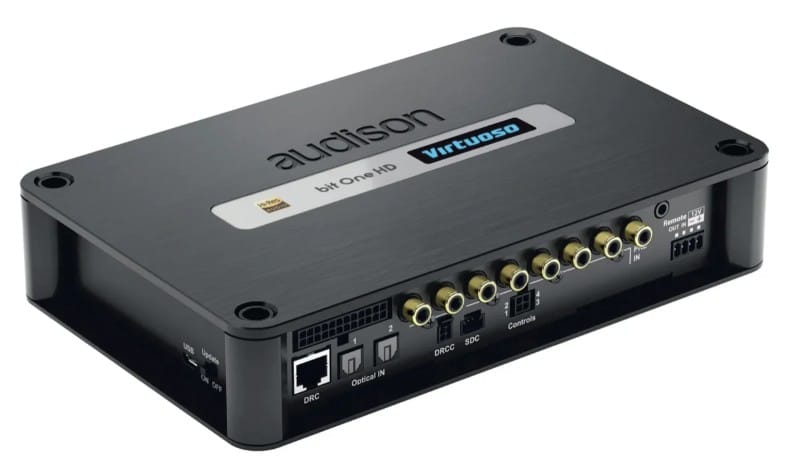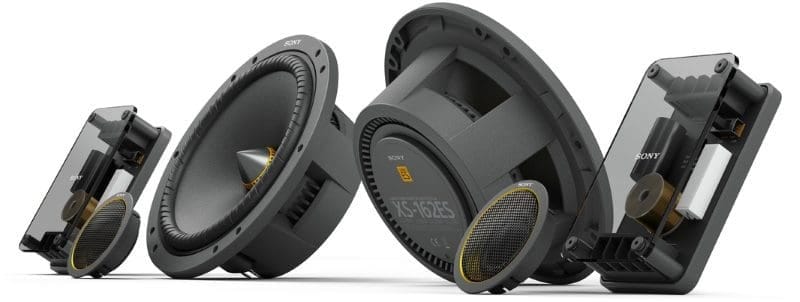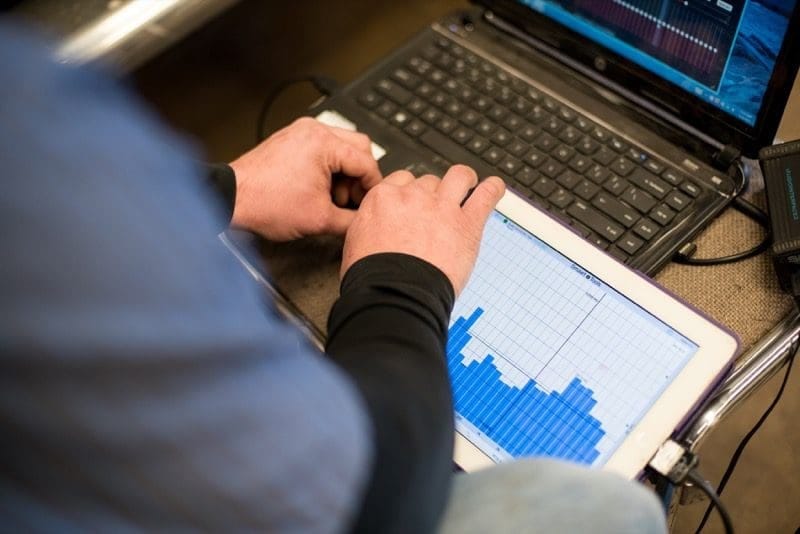Yes, a digital signal processor (DSP) can dramatically improve your car audio system by correcting for uneven frequency response, compensating for poor speaker placement and delivering a natural, balanced soundstage. Even if you’ve already upgraded speakers and amplifiers, a DSP ensures your investment reaches its full potential.
The Problem With Factory Acoustics
Car interiors are not designed for perfect audio. Speakers are often in doors, under dashboards or behind panels. Hard surfaces like glass and plastic reflect sound, while soft surfaces like seats and carpet absorb it unevenly. The result is a sound that can be boomy, harsh or unbalanced. A DSP addresses these issues by reshaping the audio signal to match the listening environment.

What Is a Digital Signal Processor?
A digital signal processor is a device that manipulates the audio signal before it reaches your amplifiers and speakers. In car audio, a DSP provides four main functions:
- Equalization to correct peaks and dips in frequency response
- Time alignment to synchronize when sounds from each speaker reach your ears
- Crossovers to ensure each speaker only plays the frequencies it can handle properly
- Signal summing and integration to combine complex factory audio signals into a clean starting point
Instead of simply making the system louder, a DSP makes the system more accurate.
How a DSP Improves Sound Quality
The biggest difference comes from precision control:
- Frequency Response Correction: A DSP flattens out peaks that make music harsh and fills in dips that make vocals or instruments sound weak.
- Time Alignment: By delaying signals slightly, a DSP ensures that sound from all speakers arrives at the driver’s seat at the same time. This creates a realistic stereo image with vocals centered on the dashboard instead of pulled to one side.
- Crossovers: A DSP properly directs bass to subwoofers, midrange tones to door speakers and treble to tweeters, so each speaker works efficiently and cleanly.
- Noise Management: Careful gain control and clean processing reduce distortion, hiss and other unwanted artifacts.
Together, these adjustments transform a car interior into something closer to a controlled listening space.
DSP vs. No DSP: The Real-World Difference
Without a DSP, even premium speakers and amplifiers can sound uneven. Imaging may lean heavily toward one side of the car, bass may overpower mids, and vocals may lack presence. With a DSP, everything locks into place. Vocals sit clearly in the center, instruments spread naturally left to right and bass integrates smoothly without overwhelming the music.
The difference isn’t subtle — most listeners describe a DSP-tuned system as sounding like “a blanket was lifted off the speakers.”

When a DSP Matters Most
DSPs are beneficial in almost any upgrade, but they become essential in certain situations:
- High-End Aftermarket Systems: Upgraded speakers and amplifiers need precise tuning to perform at their best.
- Factory Integration: Many OEM systems use multiple processed signals. A DSP combines and cleans them for aftermarket use.
- Challenging Vehicles: Convertibles, SUVs and trucks with large cabins especially benefit from the correction a DSP provides.
Do You Still Need a DSP After Upgrading Hardware?
Yes. Better speakers and amplifiers only improve performance if they are fed a properly tuned signal. Think of the system like a modern engine: the hardware is powerful, but without a computer managing timing and fuel, performance falls short. A DSP is the “computer” that optimizes your audio system.

Professional Tuning: Why It Matters
The hardware alone doesn’t deliver the magic. A DSP requires expert configuration. Professional installers use test microphones and calibration software to measure the system, then apply precise adjustments. This process ensures smooth tonal balance, accurate imaging and reliable protection from distortion or speaker damage.
Attempting to tune a DSP by ear rarely yields the same results. Professional setup is the difference between “better than stock” and “truly impressive.”
Common Myths About DSPs
- “DSPs are only for audiophiles.” False. A DSP makes a clear improvement for anyone who listens to music in their car.
- “DSPs make music sound artificial.” False. A properly tuned DSP restores balance and realism.
- “DSPs are only for competition cars.” False. DSPs are common in everyday upgrades at quality retailers.
Unlocking Your System’s Potential
A digital signal processor isn’t just another accessory — it’s often the single biggest factor in whether a car audio system sounds average or outstanding. If you want balanced, lifelike sound that makes every drive more enjoyable, a DSP is the upgrade to consider.
Visit a qualified retailer near you to learn more about professional system calibration and how it can improve your in-car listening experience.

